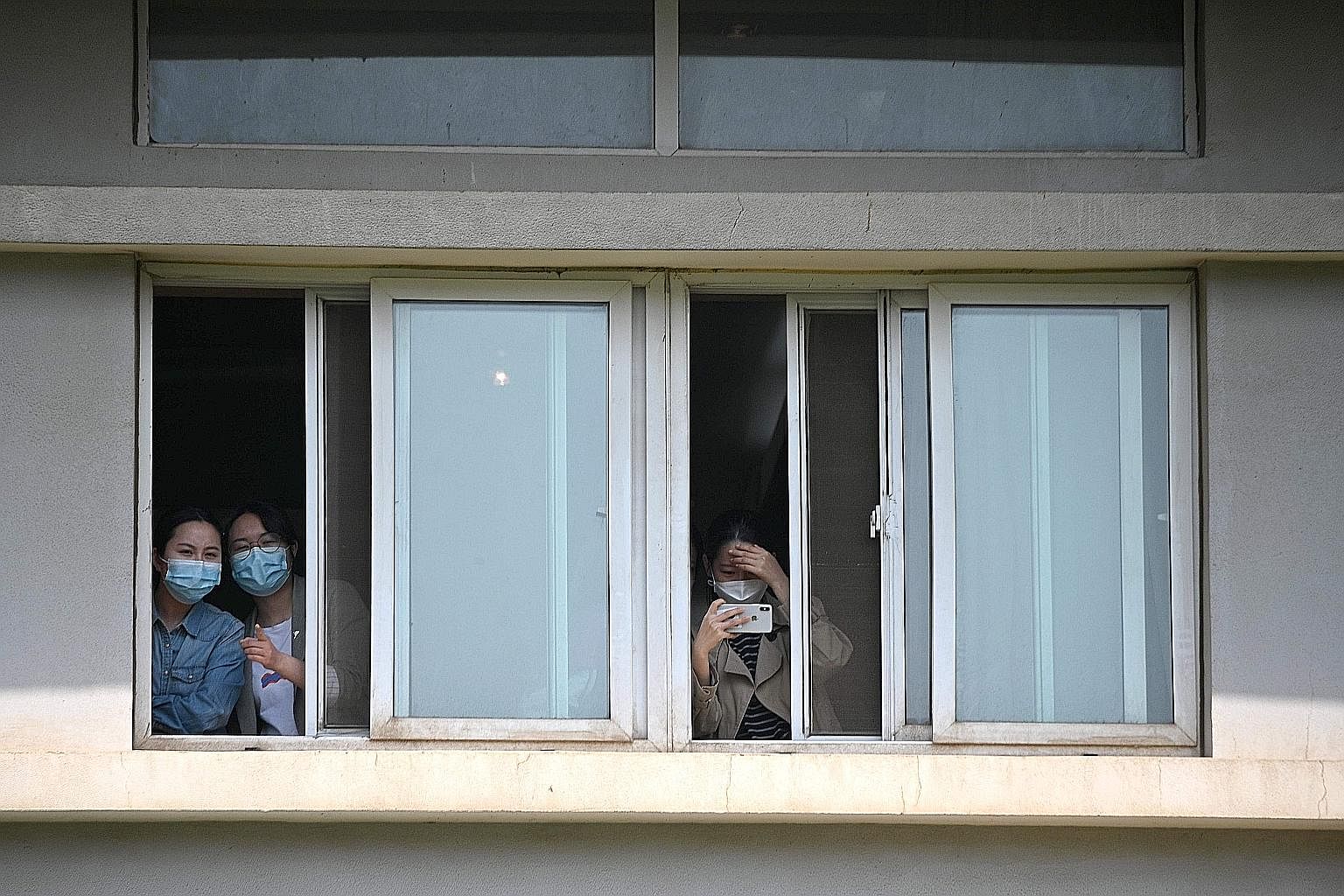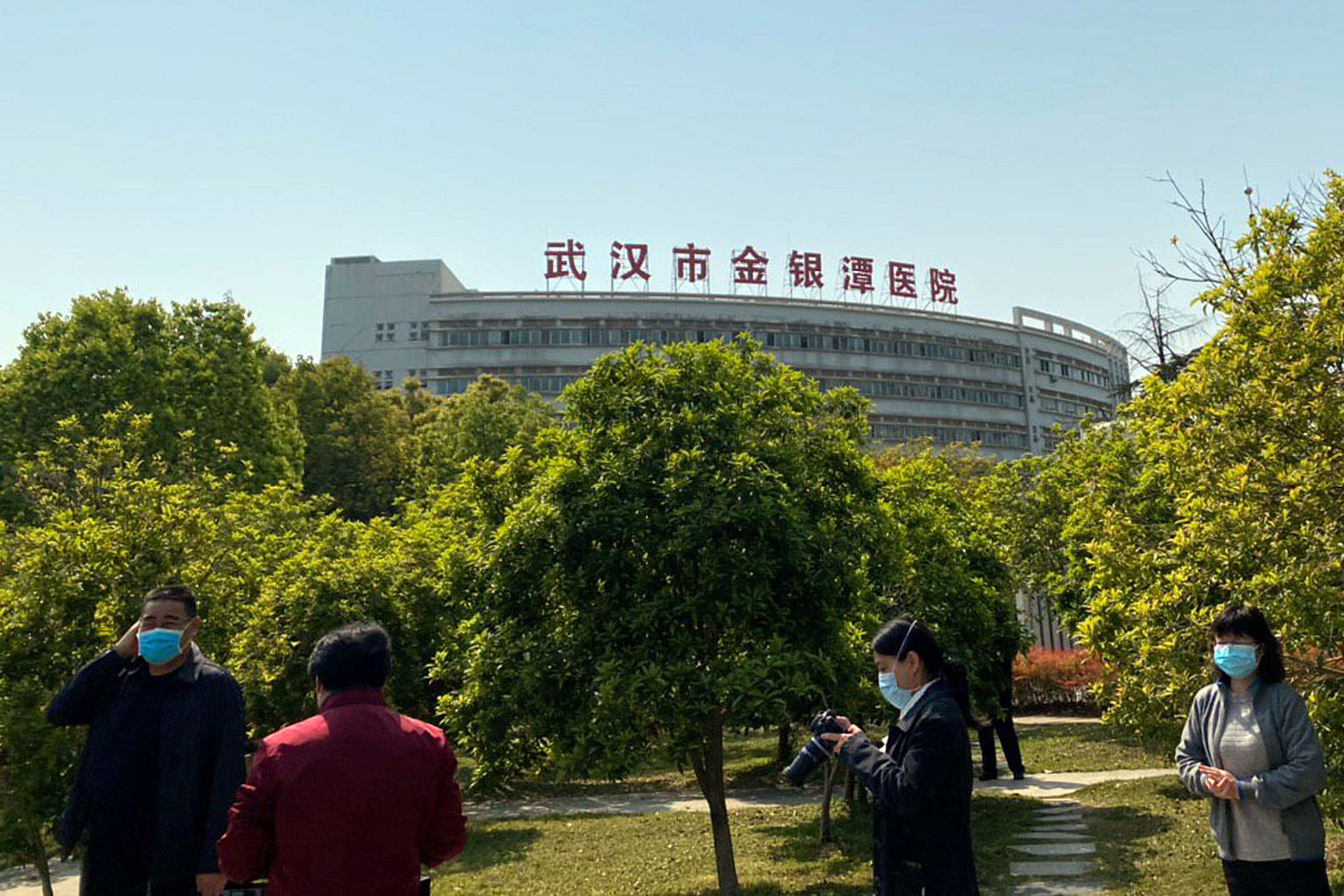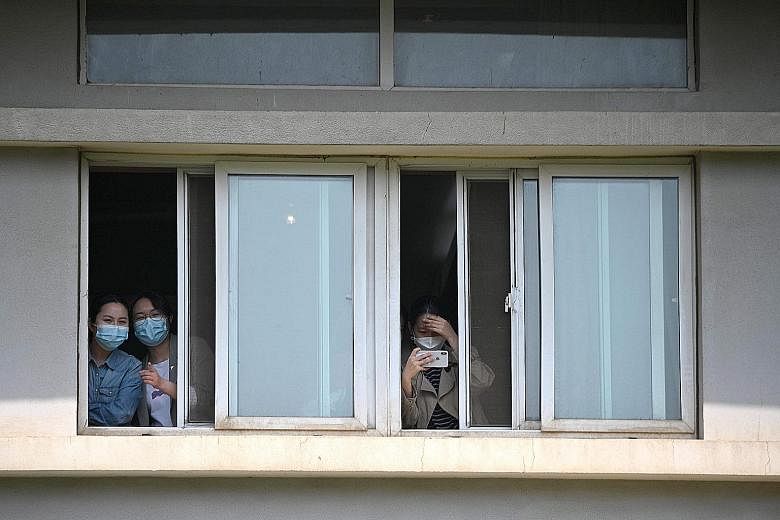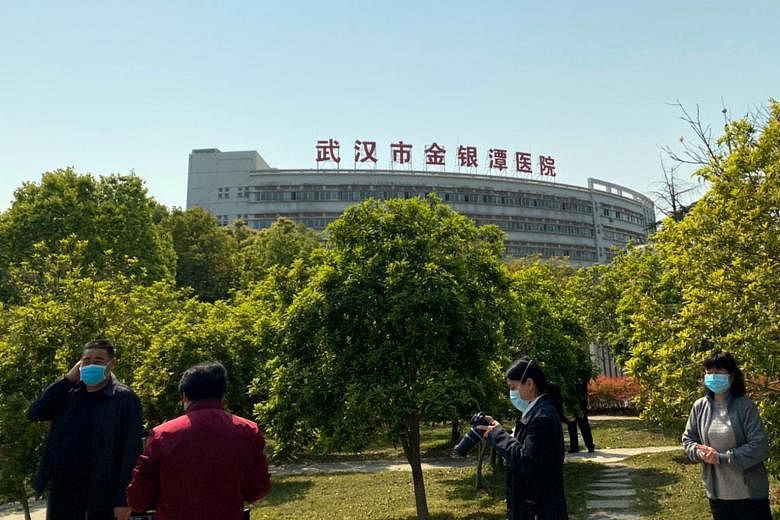As coronavirus patients continue to be discharged daily from Wuhan hospitals, the mystery of long-term patients continues to confound doctors at Jinyintan Hospital, in what the hospital's chief has said is one of its "biggest concerns".
While most of them are asymptomatic or present mild symptoms, they are still testing positive for the virus and cannot be discharged, hospital director Zhang Dingyu said.
Doctors do not know what to do with them, and the patients' emotional states are adding to their troubles.
China yesterday reported 63 new confirmed cases, 61 of which were imported. The number of imported cases is one of the biggest challenges to the country, along with asymptomatic patients.
Dubbed "ground zero" at the height of the coronavirus outbreak in the city, Jinyintan in Wuhan is the only specialised infectious diseases hospital in Hubei province, of which Wuhan is the capital.
Usually more used to dealing with HIV, bird flu, influenza and even hand, foot and mouth disease, the hospital was one of the first to start treating patients of the disease, officially known as Covid-19, after cases started surfacing in December last year.
Doctors quickly started taking samples from patients, and identified the disease as being very closely related to Sars, or severe acute respiratory syndrome, Dr Zhang told reporters at a government-organised tour yesterday.
At the height of the outbreak in February, Dr Zhang said the hospital was treating close to 500 patients and had reinforcement from Shanghai medical teams, as well as the People's Liberation Army.
It now has 123 people still under observation.
Asked whether asymptomatic cases would now prove the hospital's next biggest challenge, he said such "silent patients" are being handled by the public health authorities through measures already in place.
He added that Jinyintan is now focused on long-term patients - some of whom have spent up to 60 days isolated in hospital.
The hospital tests for the virus from four samples - nasal, oral, rectal and blood - and most patients remaining have tested negative in all samples except for their oral ones.
"Maybe in future, people will say that this practice is wrong because the virus is already dead, and there are the remaining traces of the virus within the cells," he said.
The hospital would rather "err on the side of caution", he said.
"There has definitely been an impact on patients' lives. To be in hospital for a long time, isolated and under treatment," Dr Zhang said, adding that the hospital has offered counselling and therapy for those who remain warded.
The hospital is now working to build up capacity to deal with sporadic infections, in case the virus becomes endemic within society, putting it on the same level as influenza, avian flu or hand, foot and mouth disease.

As travel restrictions ease and more overseas Chinese travel back home, there are concerns that asymptomatic patients might cause a second wave of infections.
China yesterday reported 56 new asymptomatic cases, bringing the total number of cases to 657.
The authorities started releasing figures of such asymptomatic cases on April 1, but do not offer a breakdown of where they occur.
The State Council, China's Cabinet, on Wednesday published new guidelines on reporting such cases, which now have to be reported within two hours of discovery.

The local authorities would have to investigate close contacts within 24 hours, while Covid-19 patients who are discharged would have to be quarantined for 14 days and return to hospital for follow-ups in the second and fourth weeks.
In a recent study, researchers found that undetected cases, a majority of whom were mildly symptomatic or asymptomatic, were primarily responsible for the rapid spread of the coronavirus in China.
Findings published in the journal Science show that up to 86 per cent of infections in China had gone undetected in the weeks leading up to the Jan 23 lockdown in Wuhan, the epicentre of the outbreak.
These undocumented cases were half as contagious as the documented ones, yet were the source of two-thirds of documented infections.
But Dr Zhang dismissed the notion that asymptomatic cases could pose a threat, given that there have not been any clusters that emerged, saying that some could simply have been mild cases of infection, and mass serological testing might offer a better idea of how infections spread.
"If it was a problem, we'd see a cluster by now," he said.













